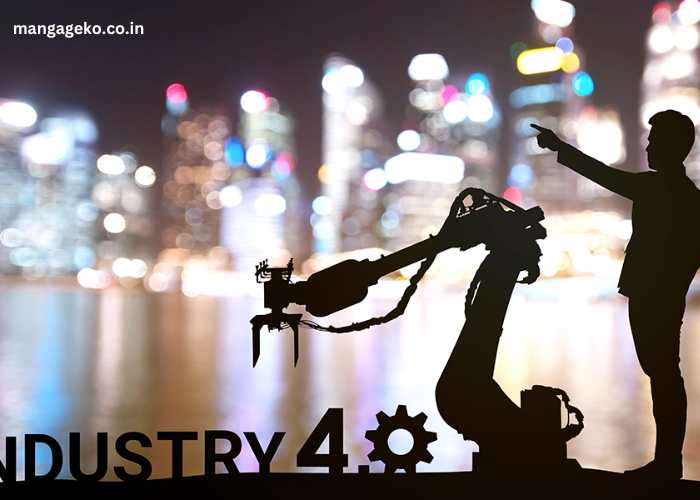As we move deeper into 2025, technology continues to evolve at lightning speed, shaping industries in unprecedented ways. From the integration of artificial intelligence (AI) to the roll-out of 5G networks and the increasing use of blockchain, these technologies are redefining how businesses operate, communicate, and serve their customers.
In this article, we will explore the key revolutionary technology trends that are driving industry transformation. These trends are not only altering traditional business models but also opening doors to new opportunities for growth and innovation.
In 2025, industries are experiencing a technological revolution that promises to change the landscape of business operations across the globe. Companies must embrace these new technologies to stay competitive, improve efficiency, and meet the growing demands of consumers. The integration of AI, 5G, automation, blockchain, and other cutting-edge innovations is revolutionizing industries and reshaping the way businesses interact with customers and manage resources.
Key Points:
- AI and automation are optimizing business operations and customer experiences.
- 5G is enhancing communication and connectivity across industries.
- Blockchain is providing new levels of transparency and security.
How is Artificial Intelligence (AI) Shaping Industries?
AI is one of the most impactful technological trends in 2025. It is not only transforming the way businesses approach tasks like automation and data processing, but also enabling innovative solutions in healthcare, finance, retail, and beyond.
AI-Powered Automation
AI is enabling businesses to automate routine tasks, freeing up time for employees to focus on more strategic work. AI-powered chatbots, for instance, are revolutionizing customer service by providing instant responses to customer inquiries. Similarly, AI-driven robots are being used in manufacturing to enhance productivity and precision in production lines.
In the healthcare industry, AI algorithms are being used to analyze medical data, identify patterns, and offer personalized treatment plans for patients. This has the potential to improve patient outcomes and reduce medical errors.
Real-World Example
In finance, AI is revolutionizing fraud detection by analyzing vast amounts of transaction data in real-time. AI systems can spot unusual patterns or discrepancies in financial activity, alerting banks and companies to potential threats before they escalate.
Reminder: AI-powered automation boosts efficiency, reduces errors, and creates new opportunities for innovation.
How Will 5G Change Communication and Connectivity?
5G technology is set to have a profound impact on industries by offering faster, more reliable internet speeds. The introduction of 5G is not just about improved mobile phone performance, but also about enabling the seamless integration of connected devices and driving the growth of the Internet of Things (IoT).
Enhancing Real-Time Communication
5G’s ultra-low latency and high bandwidth are expected to improve the performance of applications that require real-time communication, such as remote surgery, autonomous vehicles, and virtual reality (VR). This technology will enable industries to innovate at a faster pace, providing opportunities for new business models and applications.
In healthcare, 5G will enable doctors to perform surgeries remotely with the help of robotic systems. In logistics, 5G will provide faster data transfer, allowing businesses to track shipments and optimize supply chain management in real-time.
Real-World Example
Smart cities will benefit from 5G networks by allowing for the seamless integration of technologies like smart traffic management and environmental monitoring. With 5G, cities can collect and process data in real-time, leading to improved services and better urban planning.
Comparison Table: 5G vs. 4G
| Feature | 4G | 5G |
|---|---|---|
| Speed | Up to 1 Gbps | Up to 20 Gbps |
| Latency | 30-50 milliseconds | 1 millisecond or less |
| Connectivity Density | Up to 100,000 devices/km² | Up to 1 million devices/km² |
| Key Use Cases | Streaming, video calls | Autonomous vehicles, smart cities, IoT |
How Is Blockchain Revolutionizing Industries?
Blockchain technology is becoming an essential tool for increasing transparency, security, and trust in business operations. Originally designed to support cryptocurrencies like Bitcoin, blockchain has expanded into a wide range of industries, including supply chain management, healthcare, and finance.
Blockchain in Supply Chains
Blockchain’s decentralized and immutable nature makes it an ideal solution for tracking goods and ensuring transparency in supply chains. By recording every transaction on a secure, unchangeable ledger, companies can track products from raw material to finished goods, verifying their authenticity and ensuring that they meet industry standards.
In the healthcare sector, blockchain can be used to securely store and share patient medical records, making it easier for doctors to access crucial information and provide timely treatment.
Real-World Example
Walmart has partnered with IBM to use blockchain for tracking food products. This allows the company to trace the origin of food items and respond quickly in the event of contamination or safety concerns, reducing waste and improving food safety.
Reminder: Blockchain increases trust, transparency, and security in transactions and data management.
How Is Automation Transforming Industries?
Automation, powered by AI and robotics, is driving change in industries such as manufacturing, logistics, and retail. By replacing manual tasks with automated systems, businesses can achieve higher efficiency, lower costs, and improved accuracy.
Robotics in Manufacturing
In the manufacturing sector, robots are being used for tasks such as assembly, quality control, and packaging. These robots are able to work faster, with greater precision, and for longer hours than human workers, making them an invaluable asset to manufacturers.
In logistics, autonomous delivery systems, including drones and self-driving trucks, are making it easier for businesses to manage their supply chains and reduce delivery times.
Real-World Example
In Amazon’s fulfillment centers, robots are used to transport goods, sort packages, and prepare orders for shipment. This automation enables Amazon to handle a higher volume of orders and meet customer demand more efficiently.
How Will Augmented Reality (AR) and Virtual Reality (VR) Enhance Industries?
AR and VR are rapidly becoming essential tools in industries like retail, real estate, education, and healthcare. These technologies provide immersive experiences that engage customers, improve training, and help businesses deliver innovative services.
AR and VR in Retail
In retail, AR allows customers to virtually try on clothes or visualize how furniture will look in their homes before making a purchase. This improves customer satisfaction and reduces the likelihood of returns.
In real estate, VR allows potential buyers to take virtual tours of properties, saving them time and providing a better understanding of the space.
Real-World Example
In the automotive industry, brands like Audi use VR to let customers experience different car models and features in a virtual environment. This helps customers make informed purchasing decisions without having to visit a physical dealership.
Reminder: AR and VR create engaging, interactive experiences that enhance customer satisfaction and operational efficiency.
Conclusion
The technological trends of 2025 are set to dramatically reshape industries across the globe. From AI-powered automation and blockchain to the transformative potential of 5G, AR, and VR, these innovations are driving business transformation and opening new possibilities for growth and efficiency.
To remain competitive in the fast-changing business landscape, companies must embrace these technologies and adapt their operations to take full advantage of the opportunities they offer. The future of business is digital, and those who innovate and stay ahead of these trends will be the ones who lead their industries into the next generation of success.
FAQ’s
- How is AI transforming industries in 2025?
- AI is automating tasks, improving decision-making, and enhancing customer experiences in various industries, such as healthcare, finance, and retail.
- What is the significance of 5G in transforming industries?
- 5G enables faster, more reliable communication, empowering innovations like autonomous vehicles, smart cities, and remote healthcare.
- How does blockchain improve supply chain management?
- Blockchain provides transparency, security, and traceability, allowing businesses to track products and ensure their authenticity.
- How are AR and VR enhancing customer experiences in retail?
- AR and VR allow customers to virtually try on products or take immersive tours of properties, enhancing their shopping experience.
- What is the role of automation in improving business efficiency?
- Automation through AI and robotics streamlines processes, reduces errors, and increases productivity, helping businesses stay competitive.




